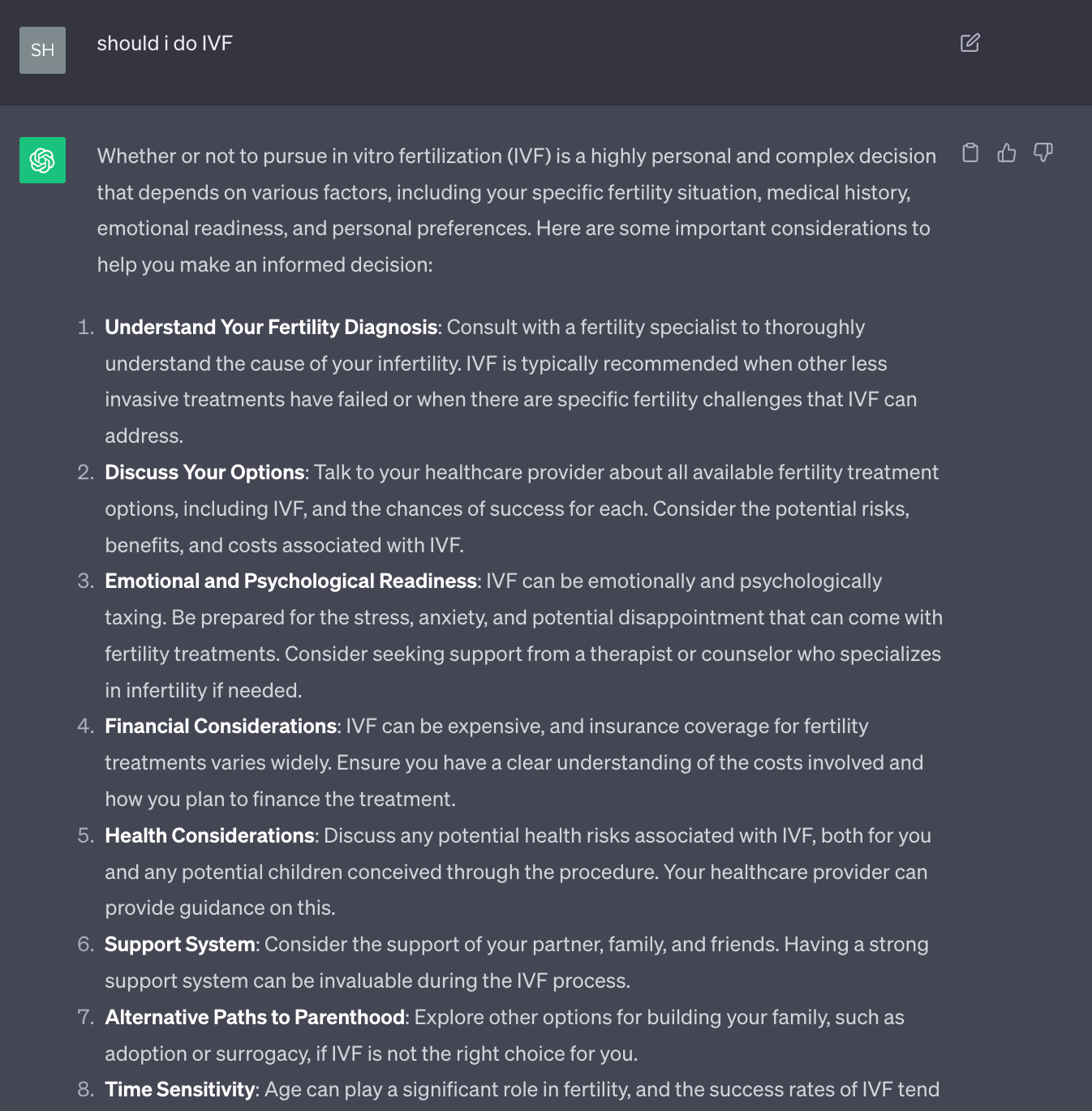What can A.I. do for you?
How I use ChatGPT for questions and tasks (but sparingly, and at my own risk)
Note: A human (me) wrote this week’s newsletter.
Are you an A.I. noob?
Do you have FOMO when it comes to everyone talking about A.I., but you’re not sure how to join the conversation?
You may not know it, but you’ve already directly or indirectly benefited from A.I. for some time now.
For everything from streaming TV to credit card recommendations, the apps and tools we use on a daily basis have been studying our user behaviors and data to become more intelligent, and better preempt and cater to our needs.
So while A.I. has been using us for some time now, we can learn how to use A.I. for our benefit, to solve both life’s most simple and perplexing quandaries.
How to get started with ChatGPT
The easiest way to participate is by using ChatGPT (Chat Generative Pre-trained Transformer).
The standard version is free to use.
Simply go to chat.openai.com, sign up, and start.
Here are some ways I’ve used ChatGPT:
Recipes
Recently, while on holiday in Charleston, SC, and while dining at the delicious The Ordinary Restaurant, my foodie and chef extraordinaire sister-in-law asked whether ChatGPT could provide a recipe, and not any recipe, but a Chinese chicken curry recipe. So, I pulled up ChatGPT and asked “What is the best Chinese curry recipe”
Here’s what we got. She was impressed!
Book summaries
Though I have a fond recollection of Cliff’s Notes, ChatGPT provides decent book summaries. Case in point, when I asked about Proust’s Swann’s Way:
Personal life questions
Though ChatGPT prefaces answers to personal questions with a pretty big disclosure, it does provide fairly straightforward, practical advice.
For example, on an IVF query, all of the considerations aren’t too different than the advice you’d get from initial doctor consults or friends who’ve been there, done that:
A couple of caveats.
ChatGPT isn’t always right
It doesn’t show from where around the internet it gets its information, which this attorney found out the hard way when he relied on ChatGPT for casework, and was later sanctioned because ChatGPT actually provided a legal brief filled with fake judicial opinions and legal citations.
And don’t forget the nefarious ways people have used A.I. with deepfakes that make us question reality.
If you ask ChatGPT to write a blog post for you, then it’s going to be generic, without any real point of view.
That’s not going to help grow your audience or establish your authority as a thought leader.
You can however, do some amazing things like build sales systems and accomplish tasks at scale.
For example, the design software Canva recently integrated with ChatGPT, but it still requires a bit of legwork, i.e., ChatGPT only suggests templates but doesn’t do any text creation, copying, or pasting for you.
So at their best, A.I. and ChatGPT are useful tools to help with efficiency, productivity, and basic knowledge questions.
At their worst, they are lying to you and never assume authenticity or accuracy.
**
Until next time,
Shindy
On Instagram + TikTok
***
Did you enjoy this newsletter?
Please like it by clicking on the heart at the very top or bottom of this post, or share it with you someone you think would find value in it. 🙏









